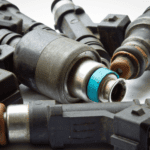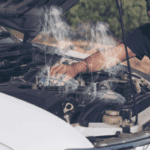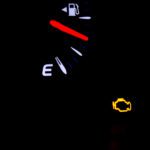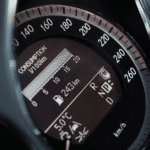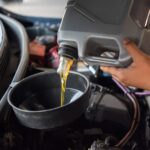Just as much as a vehicle’s engine is critical, the components that make up the engine are indispensable. Some of these components are so delicate that, if not cared for, they can cause damage to the engine and bring the entire vehicle to a halt. One such part is the EGR valve.
If you are new to the automobile world, you may have yet to learn of the EGR valve. But there’s no need to fret either way; I’ve covered you in this article, as I will give tips on preventing EGR valve failure, but we will start with what it actually does.
What Is an Egr, and What Is Its Function?
To start with, EGR stands for Exhaust Gas Recirculation valve.
All car engines generate a toxic chemical known as nitrogen oxide or NOx, a by-product of nitrogen and oxygen reacting during combustion. Nitrogen oxide passes out of a car through the exhaust pipe, which is not good for the environment.
Emission standards have evolved over the years as cars have become more complex. Several new vehicles, diesel and petrol, now incorporate an EGR system that reduces the levels of nitrogen oxide by cycling exhaust gases back through the engine.
The main purpose of the EGR valve is to aid in reducing engine emissions. The EGR valve does this by taking a proportion of the exhaust gasses back to the combustion chamber, where the temperatures are reduced, decreasing the amount of NOx released into the atmosphere.
Without an EGR valve, temperatures inside the combustion chamber are much higher. This means higher levels of Nitrogen Oxide are created and released into the atmosphere. Therefore, if the EGR valve of your vehicle fails to function correctly, it may lead to severe issues not just for your car but the environment, too.
Symptoms Of A Failed EGR Valve
When an EGR fails, you can expect problems such as:
- Decrease in power
- Reduction in fuel efficiency
- Rough idling or stalling
- Check engine light may come on
- Engine knocking
- Excessive black smoke coming out of the exhaust
- Engine going into limp mode
How To Prevent EGR Valve Failure
With EGR valve failures come solutions and preventive measures to protect the valve. Usually, in case of a failure, depending on the type of valve failure, a mechanic may be able to repair or clean the valve. Otherwise, opting for a new valve could be the only option. EGR valves aren’t costly items; however, the labor time to replace them can be pretty high. EGR valves that regularly fail are always in tight-to-reach spots in the engine bay. However, you can take measures to prevent the failure of the EGR valve yourself:
- Use EGR/DPF cleaning fuel additive and drive the vehicle. This doesn’t need to be done with every tank of fuel, just every so often.
- Drive the vehicle above 50 for more than 30 minutes once a week. At operating temperatures, the EGR valve automatically opens and closes, self-cleaning as you drive. This measure is preventative only; it won’t solve an already clogged or stuck EGR valve.
- Make sure to keep the EGR valve clean. You can do this by using a carburetor cleaner to spray the valve’s insides, which helps soften any stuck residues. This isn’t possible on every EGR valved car.
- Occasionally, perform a diagnostic check, which will check engine temperature sensors, etc., and replace them if needed. You would usually only perform this type of check if you had a fault or a reason. Some service centers will check the diagnostic system every time a vehicle comes in, which would highlight a problem.
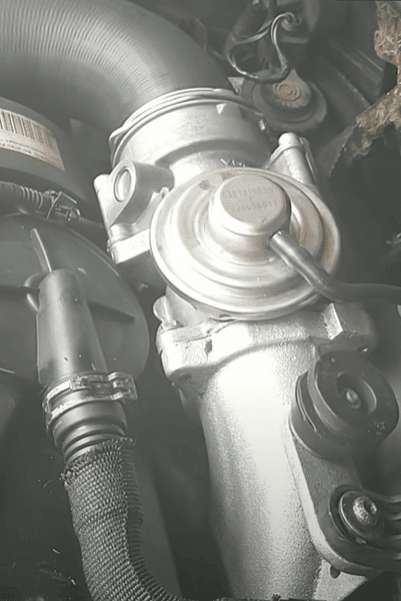
What Causes an Egr Valve to Fail?
There are a couple of situations that can lead to the failure of the EGR Valve. Some of these include:
- Defective Temperature Sensor
The most crucial role of the EGR is to reduce nitrogen oxide levels. However, the EGR valve ensures the engine’s fuel efficiency is ideal by regulating the pressure and temperature within the engine cylinders. The EGR valve solely opens and closes at specific integral times. The temperature sensor determines these times. The valve opens when the engine’s temperature rises and closes when it cools. So, if the temperature sensor is bad and takes on a wrong reading, the EGR valve will not function as it should.
- Blocked EGR Pipe
The EGR system uses an EGR pipe to convey exhaust gasses to the engine. The exhaust gasses contain certain impurities, such as soot and carbon. In the long run, these substances accumulate on the EGR pipe walls and can ultimately interrupt the flow of gasses. This can lead to an insufficient flow rate in the EGR system and dangerous temperature levels in the engine.
- Sticky EGR Valve
Carbon can also build up in the EGR valve like the EGR pipe. A build-up will make it difficult for the valve to open and close seamlessly. The valve might get stuck in either a partly open or partially closed position. The result is that, when stuck in an open position, it permits the inflow of excess exhaust gasses into the engine, drastically reducing the performance and fuel economy. A valve partly closed position does no good either as it prevents exhaust gas inflow back to the engine, leading to a rise in the engine’s temperature.
With an EGR valve stuck open, you can expect massive plumes of thick black exhaust gasses alongside the engine management light, potential engine misfires, and an overbearing burning odor.
How Long Should an Egr Valve Last?
On average, the EGR valve of a car can have a lifespan of up to 10 years or 50,000 miles; each brand of vehicle is different. Some EGR systems are designed and built better than others.
The lifespan of an EGR (Exhaust Gas Recirculation) valve is directly related to your driving habits and maintenance. Proper maintenance is crucial to keep the valve functioning effectively. Heavy traffic can cause frequent activation of the EGR valve, ultimately shortening its lifespan.
Frequently Asked Questions
Will A Faulty EGR Valve Stop A Car From Starting?
It’s possible for a faulty EGR valve to prevent a car from starting, but it’s not a common issue. In extreme cases, if the EGR valve gets stuck in the open position, it will recycle exhaust gasses straight back into the engine cylinder, causing the engine to stall and preventing it from starting.
Can You Clean The EGR Valve Without Removing It?
You can clean the EGR valve without removing it by using a specialized fuel treatment that targets the EGR valve. This won’t necessarily cure a faulty EGR valve clogged with carbon, but it will help. A fuel treatment is effective in preventing a build-up with occasional use.
Final Thoughts
As you now know, the exhaust gas recirculation system (EGR system) is an essential part of a car engine. So, understanding how to prevent EGR valve failure is the right course of action to ensure the smooth running of your vehicle. The points brought to the spotlight in this article will be highly beneficial in keeping your car’s EGR valve clean and problem-free.


